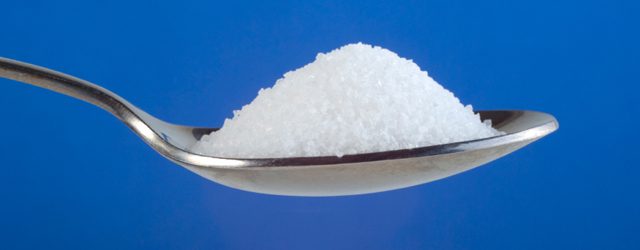health promotion
Don’t let COVID-19 defer the diabetes care you need
Forest Bathing and other ways to keep stress under control
Hype in science: It’s not just the media’s fault

Ground-breaking. Life-saving. Revolutionary. Health journalists like André Picard of The Globe and Mail and Julia Belluz of Vox.com often see such words splashed on press releases about new studies in medicine. “When I see those words,” says Belluz, “my little alarm bells go off.” Journalists have come under fire for sensationalizing health science. But research …
The health effects of coal power – and why it’s time for Alberta to phase it out

Through our work looking at the negative public health impacts of coal on Albertans’ health, we often run into skeptics. “Show me the grave of someone who died from coal!” they demand. This is difficult, given the nature of coal’s effect on our health: the science of public health looks at things at a population, …
Diabetes and the trouble with healthier lifestyles

At the end of January, the Ontario Ministry of Health and Long-Term Care (MOHLTC) announced almost $10 million in new funding to address type 2 diabetes, with a focus on screening and the ‘promotion of healthier lifestyles.’ There is a lot to celebrate in this announcement, particularly community-based screening initiatives. And who could complain about …
Postpartum depression is a family affair

At long last, people are talking about postpartum depression. Dismissed for years as no more than a touch of the baby blues or else unheard of entirely, postpartum depression — or PPD, as it is often known — has become an open subject. Healthcare providers are aware of it, many nurses and physicians routinely screen mothers for …
High users of health care: are we asking the right questions?

There is little doubt that system transformation is necessary to achieve sustainable and high-quality health care for Canadians. In recent years, the care and management of high users (HU) of health care has emerged as a focal point for developing a sustainable health care system. Despite the focus on this group, one question has received …
Bad jobs are making Canadians sick

We know that social environment plays a large role in shaping people’s health. Determinants like poverty and housing have recently received much deserved attention. The recent report by Canadian Medical Association, What Makes us Sick?, for example, identifies poverty as the leading cause of poor health outcomes and health inequity among Canadians. But poverty, housing …
Does knowing your health risks change your behavior?

Exercise is good for you. Eat more fruits and vegetables. Stop smoking. Drink less alcohol. Such messages abound in public health campaigns and there is a firm belief that they will ultimately change behavior. This is based on the assumption that individuals are motivated to change behaviors to reduce their individual health risks. While healthy …
Family Care Clinics – filling a gap or costly duplication?

During her campaign for reelection in 2012, Alberta premier Alison Redford promised to create 140 Family Care Clinics (FCCs) over three years. She articulated a vision of primary care that would be one-stop, with many different health care providers under one roof. These clinics would have expanded hours to improve patient access, and would focus …
“Chronic blindness” to health impact of alcohol policies

It’s a political football. Whenever the prospect of privatizing the Liquor Control Board of Ontario (LCBO) is placed on the agenda, the result is a heated and polarized debate. Tax revenues, employment, competition and consumer convenience—these are the concerns that dominate discussion. But when it comes to any changes in alcohol policy, explicit consideration of the health …
The talk the food industry couldn’t bear to hear

A little over a month ago I was invited by the Ontario Medical Association to give a talk at a food industry breakfast. I was asked to speak about what I thought the food industry could do to help further public health. 3 days prior to the talk, after my flights and hotel were booked, …
Breastfeeding is falling between the cracks of our health care system

There is a major gap between public health messages, women’s intentions and actual practices when it comes to breastfeeding. I’ve experienced this first hand as a new mother. The major topic of conversation amongst new mothers tends to center around breastfeeding and ensuring that our babies’ needs are being met. Whether your baby is getting …
A sobering lesson about prevention

By all accounts, Kaiser Permanente (a non-profit healthcare insurer and provider in the United States) is one of the best performing health care systems in the world. Shouldn’t it follow then, that its health plan members fare better as a population in terms of their health status? Not quite. A few weeks ago, Kaiser Permanente …
Prevention or intervention? On walking away from the health care system

Almost a decade ago, in my mid thirties, a routine physical showed elevated liver enzymes. Follow-up tests three months later showed them rising. My doctor was diligent, and referred me to the liver clinic at Toronto Western Hospital. What followed was a year-long series of interventions, which at first were benign – lose ten pounds …
Assault on salt: should Canada actively reduce salt consumption?

Three quarters of our daily salt intake comes from prepared and manufactured foods. Experts suggest that the most effective approach to reducing salt consumption in a population is to more actively regulate the amount of salt in prepared foods. However, there is a debate about the best strategy to curb salt intake in Canada. Does …
Are Canadians too salty?

Salt intake is difficult for individuals to control, because more than three quarter of the salt we consume comes from processed foods, like bread, deli meats and dairy products. Most Canadians are consuming more than double the daily recommended amount of salt. While there is a link between salt consumption and heart disease and stroke, …
Is stuff making us sick? part 2

In my last post I explored how stress, debt, and environmental destruction seem like obvious implications of consumption. But what if too-much-stuff is also the source of physical illness? John de Graaf, David Wann, and Thomas Naylor brilliantly address this issue in their book Affluenza: The All Consuming Epidemic in their depiction of consumerism as a …
Is stuff making us sick? part 1

As a young person just beginning my career as a physician, it is extraordinarily overwhelming to confront the disconnect between the values that created our Medicare system and the logistics of how it has evolved. Despite those incredible challenges, I am more so struck on a daily basis in practice by the manner in which …


